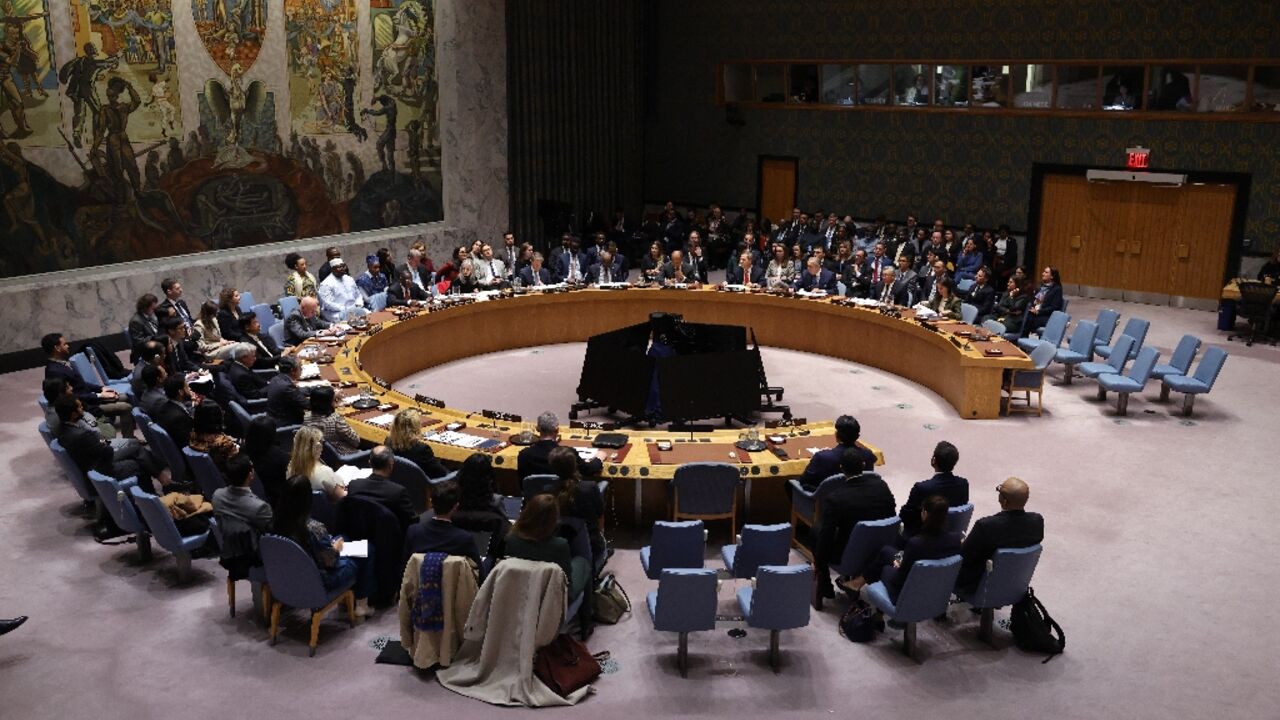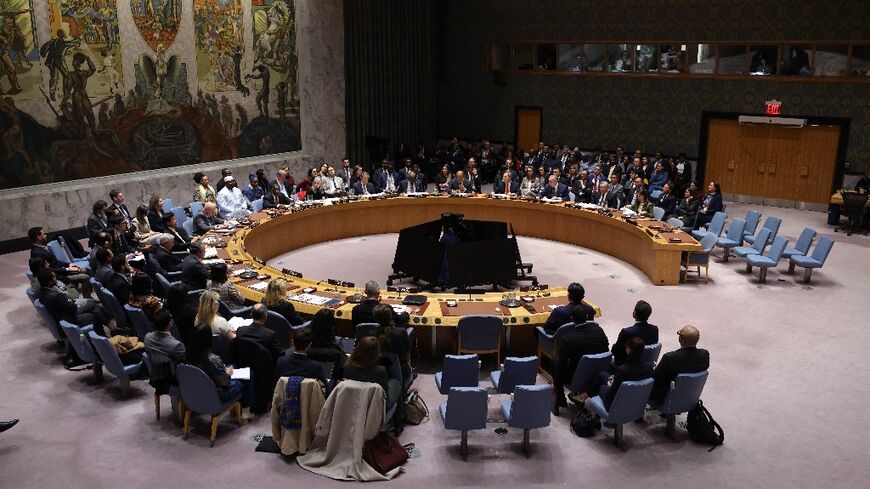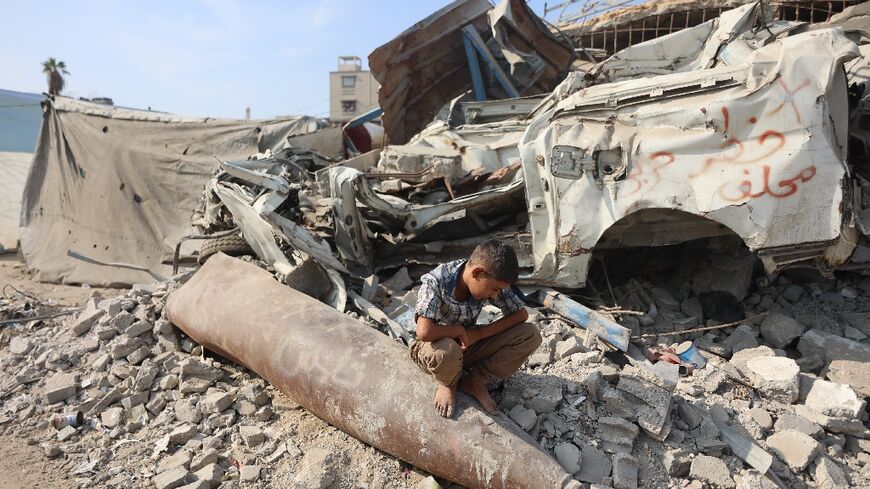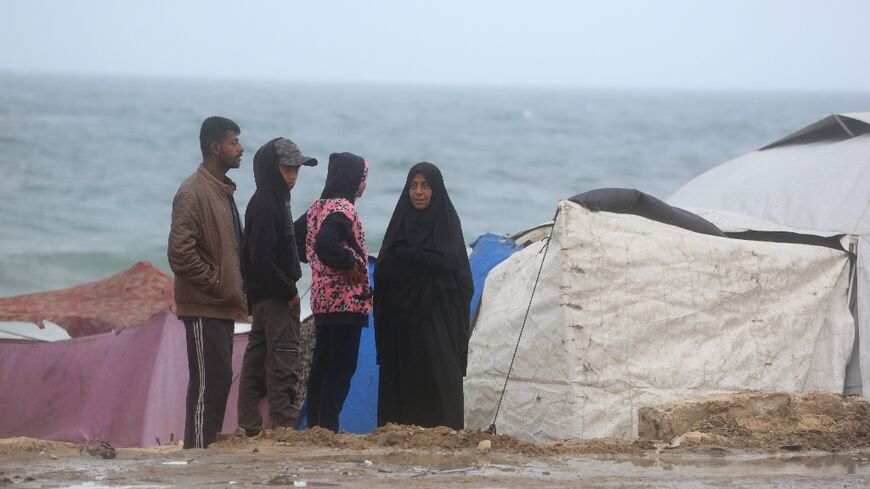UN Security Council endorses US plan for Gaza security force
The US-drafted resolution also endorses the Trump-led Board of Peace and references possible statehood for the Palestinians.

The UN Security Council has adopted a resolution authorizing an international security force in the Gaza Strip, delivering a diplomatic victory to the Trump administration a day before it welcomes the Saudi crown prince to Washington.
The resolution passed with 13 votes in favor and abstentions from Russia and China.
The US-drafted text was modeled off of President Donald Trump’s 20-point peace plan for Gaza, the first phase of which saw Israel and Hamas agree to a ceasefire last month. The truce is largely holding, although the militants have yet to return the bodies of several deceased hostages and Israel hasn’t fully lifted aid restrictions as required.
The Security Council vote came a day before Saudi Crown Prince Mohammed bin Salman is due to meet with Trump at the White House, marking his first visit to the United States since 2018. Trump is pushing for the oil-rich kingdom to normalize ties with Israel, but Riyadh has conditioned any agreement on significant progress toward a Palestinian state.
Saudi Arabia, along with Qatar, Egypt, the United Arab Emirates, Indonesia, Pakistan, Jordan and Turkey, issued a joint statement Friday endorsing the resolution, which authorizes the international stabilization force through the end of 2027. Several of those countries had indicated they would be willing to contribute troops to a stabilization force but not without a UN mandate first.
The resolution says the stabilization force will work with Israel and Egypt, along with a newly trained Palestinian police force, to secure Gaza’s borders and ensure its demilitarization by decommissioning Hamas’ weapons and destroying the group’s military infrastructure. The resolution does not specify terms of engagement or how the force will disarm Hamas if the group refuses to do so on its own. It also fails to outline the Security Council's mandate for enforcement.
US Ambassador to the United Nations Mike Waltz described the stabilization force as “a strong coalition of peacekeepers” hailing from Indonesia, Azerbaijan and other Muslim-majority countries who would “deploy under a unified command.”
“These brave souls will secure Gaza streets,” Waltz told councilmembers before the vote.
Once the force has established stability and operational control, the Israeli military would completely withdraw “save for a security perimeter presence that will remain until Gaza is properly secure from any resurgent terror threat." The resolution also endorsed the creation of a Board of Peace that would temporarily oversee Gaza’s governance and reconstruction.
Russian Ambassador to the UN Vasily Nebenzya warned that the resolution was a “fig leaf for unbridled experiments conducted by the US and Israel” in the Palestinian territories.
“The council is giving its blessing to a US initiative on the basis of Washington's promises, giving complete control over the Gaza Strip to the Board of Peace and the [International Stabilization Force], the modalities of which we know nothing about so far,” Nebenzya said after the vote.
The original US draft did not make reference to a Palestinian state. After pressure from member states, the United States revised its draft last week to state that “the conditions may finally be in place for a credible pathway to Palestinian self-determination and statehood” after the Palestinian Authority carries out reforms and Gaza’s redevelopment has advanced.
“The United States will establish a dialogue between Israel and the Palestinians to agree on a political horizon for peaceful and prosperous coexistence,” the resolution says.
Speaking at a cabinet meeting on Sunday, Israeli Prime Minister Benjamin Netanyahu reiterated his opposition to a Palestinian state and vowed to demilitarize Gaza “the easy way or the hard way.”
The vote on Monday came after torrential rains this weekend flooded the tent camps and makeshift shelters housing Palestinians displaced by the two-year war. Last month, the UN migration agency said more than 1.5 million people across Gaza require emergency shelter assistance.



